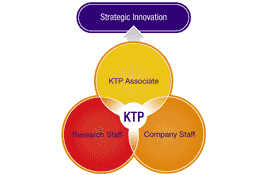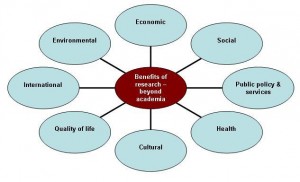You may hear the terms Enterprise Education and Employer Engagement banded about quite a lot but what do they actually mean? Jo Stark, BU’s Employer Engagement and Entrepreneurship Manager, provides some further clarification.
Enterprise Education
The term “Enterprise Education” at BU draws together existing pockets of best practice into a coherent whole that will provide a focus for further development across the institution and beyond institutional boundaries.
For an example of this see the Dynamo Enterprise Boot Camp Video which provides a bite size overview of the 2010 enterprise boot camp for students that BU facilitated with four other regional universities in collaboration with local businesses.
By embedding opportunities for our students to engage in external activity within the curriculum, academics can not only enhance our students’ employability, but also develop their profile with employers. This can be embedded through live consultancy projects, business simulation challenges and involvement in the entrepreneurship society – Business Mania.
Although activity such as student placement and graduate recruitment does not create direct enterprise income, it offers BU and its academics a significant platform for employer engagement. As an example, by helping our graduates to gain employment not only develops relationships with employers, but enables the academic to maintain the relationship with the graduate, who, in a few years could become a client for BU.
By demonstrating “enterprising” attributes through their approach to teaching and research, academics will not only encourage their students to think this way, but will also develop opportunities for income-generating activity.
The team in the Centre for Research and Enterprise (CRE) have recently supported academics in DEC to develop a dedicated enterprise module in the Software Systems degree framework. The team not only helped with the development of curriculum, but also provide external speakers for guest lectures to help enhance the learning experience for the students and develop wider opportunities.
Employer Engagement
At BU ‘Employer Engagement’ is defined as any form of contact between BU and an employer that attempts to effect a change in the intellectual capital, understanding or behaviour of an employer, for specific purpose of commercial gain on BU’s part or to benefit the economy of region and wider public.
BU takes its interpretation of Employer Engagement therefore as Enterprise in its widest sense. BU includes activity focussed at both business and community:
1. Demand led learning and teaching provision (Short courses)
2. Workforce Development (CPD)
3. An active stakeholder in the economic prosperity of the conurbation and wider region
4. Employer focussed curriculum development
5. Employability (student and graduate placements)
In order to do this, it is vital that, as part of this activity an in-depth understanding of HE and economic policy is maintained, not only enabling BU to remain reactive to external drivers, but also remain competitive in an increasingly dynamic market place.
Through this activity CRE is able to generate opportunities for the institution, academic staff and students. In recent months CRE has established a strategic relationship with a blue chip multi-national and brokered the opportunity across to a leading Prof. Numerous placement and graduate recruitment opportunities are captured and disseminated to the appropriate schools. This activity also enables CRE to identify employer demand for specific short course development.
For further information contact Jo Stark who will be happy to help. Otherwise check out the BU Enterprise Intranet pages on Enterprise Education and Employer Engagement.
![]() As well as the recently launched BU Research Blog, BU Research has established a Facebook group to allow those of you on Facebook to have a private shared area to discuss research!
As well as the recently launched BU Research Blog, BU Research has established a Facebook group to allow those of you on Facebook to have a private shared area to discuss research!















 Dr Ben Thomas
Dr Ben Thomas The Royal National Lifeboat Institution (RNLI) is a charitable organisation that provides marine search and rescue cover along the entire coast range of the UK and Ireland. Lifeboat slipway stations are an essential part of the RNLI’s coastal protection; they allow lifeboat stations to be located in areas where there is no natural harbour and for lifeboats to be launched in almost any weather conditions. However, as the size and mass of lifeboats have increased over the years the traditional wood or steel lined slipways have been shown to be insufficient, with problems of friction and wear affecting the reliability of slipway launches. New composite slipway panels have reduced these issues but high friction and wear problems remain, with replacement costs for the expensive composite panels placing strain on the RNLI’s scarce resources.
The Royal National Lifeboat Institution (RNLI) is a charitable organisation that provides marine search and rescue cover along the entire coast range of the UK and Ireland. Lifeboat slipway stations are an essential part of the RNLI’s coastal protection; they allow lifeboat stations to be located in areas where there is no natural harbour and for lifeboats to be launched in almost any weather conditions. However, as the size and mass of lifeboats have increased over the years the traditional wood or steel lined slipways have been shown to be insufficient, with problems of friction and wear affecting the reliability of slipway launches. New composite slipway panels have reduced these issues but high friction and wear problems remain, with replacement costs for the expensive composite panels placing strain on the RNLI’s scarce resources.










 Postgraduate Research Experience Survey (PRES) 2024 – Closing today
Postgraduate Research Experience Survey (PRES) 2024 – Closing today THE INNOVATION COMMON ROOM: Going Old School
THE INNOVATION COMMON ROOM: Going Old School Cybersecurity Learning through Game-Based Mechanisms
Cybersecurity Learning through Game-Based Mechanisms Nepal Study Days 2024
Nepal Study Days 2024 We can help promote your public engagement event or activity
We can help promote your public engagement event or activity Funded Public Engagement Opportunity – ESRC Festival of Social Science 2024 -Deadline for Applications Thursday 16 May
Funded Public Engagement Opportunity – ESRC Festival of Social Science 2024 -Deadline for Applications Thursday 16 May MSCA Postdoctoral Fellowships 2024
MSCA Postdoctoral Fellowships 2024 Horizon Europe News – December 2023
Horizon Europe News – December 2023